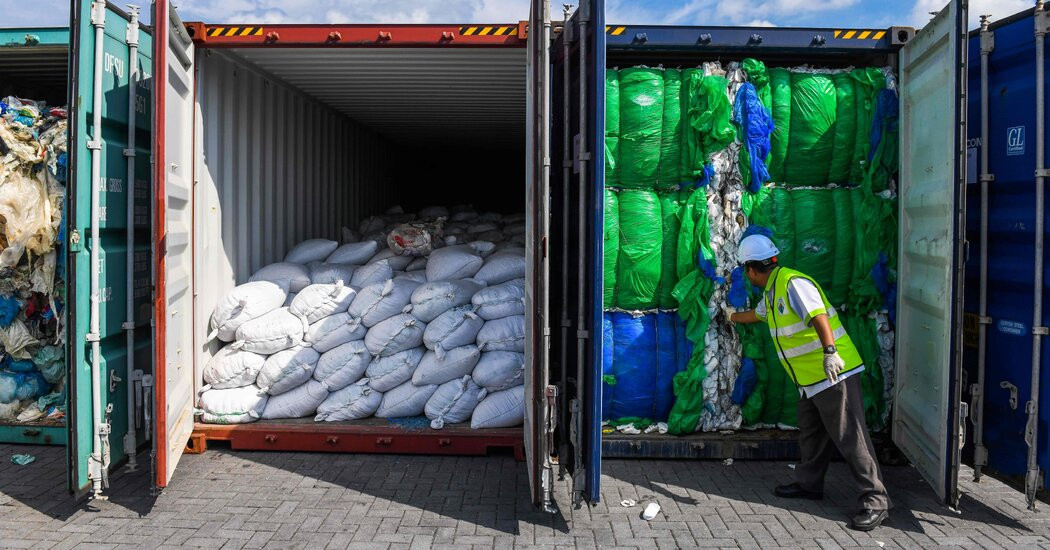

No country receives more discarded plastic from wealthy countries, but shipments from the United States are no longer welcome.
In the shadow of President Trump’s tariff fights, a different kind of trade war is playing out involving candy wrappers and plastic bottles.
On Tuesday, Malaysia, which received more discarded plastic from rich nations than any other developing country last year, effectively banned all shipments of plastic waste from the United States.
That might not seem like a big deal. But the United States has increasingly relied on countries like Malaysia to deal with plastic trash. American scrap brokers sent more than 35,000 tons of plastic waste to Malaysia last year, according to trade data analyzed by the Basel Action Network, a nonprofit group that tracks plastic waste issues.
Last year, after seizing more than 100 shipping containers of hazardous materials sent from Los Angeles that had been improperly labeled as raw materials, the Malaysian environment minister, Nik Nazmi, told reporters that “we do not want Malaysia to be the world’s rubbish bin.” The country’s Ministry of Investment, Trade and Industry did not respond to a request for comment on Tuesday.
Turmoil in the little-known trade in plastic waste has its roots in a decision by China in 2018, for the same reasons as Malaysia, to ban imports of wastepaper and plastic. Before that, China had for years accepted as much as half of the globe’s discarded plastic and paper.
Western nations have since struggled with a buildup of plastic trash. The United States recycles less than 10 percent of the plastic it discards. (Food and other contamination in plastic waste hinders recycling, and a significant portion of plastic, like chip bags that contain layers of different plastics and other materials, simply can’t be recycled economically.)
![Enjoy the [Road] Show Travel Mug with Handle, 14ozEnjoy the [Road] Show Travel Mug with Handle, 14oz](https://georgemagazine.com/wp-content/uploads/2024/08/479070202831754764_2048-300x300.jpeg)


